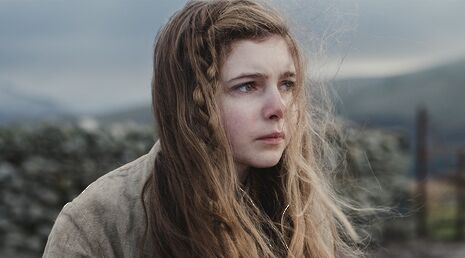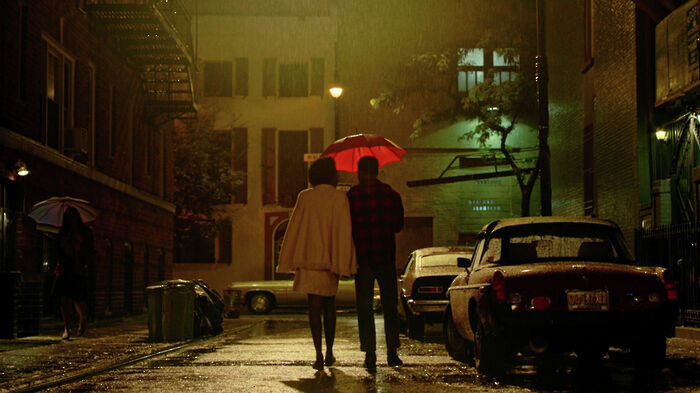Who’s afraid of William McGregor?
Orla Horan interviews a filmmaker who has thrived through the channels of the Watersprite Film Festival
A few careers have massively developed during the course of the last decade. In 2010 James Corden was best known for being Smithy, Lady Gaga for ‘Poker Face’ and Jeremy Corbyn for being a persistent backbencher. How times have changed.
The last 10 years has been similarly transformative for writer-director William McGregor. From his award-winning short film Who’s Afraid of the Watersprite? (2010) to his first feature length film Gwen (2019) it is clear that his progression from ‘Farm boy’ to ‘Film boy’, as he puts it in his instagram bio, is in full swing.
This transformation has not meant that McGregor has lost touch with his roots. In fact, he is extremely sensitive to the impact growing up in the “rural landscape” of Norfolk has had on his filmmaking. This fascination with the natural world manifests itself clearly in both Poldark (McGregor directed several episodes of the successful series set in sublime Cornish landscape) and Gwen (set in the unsparing Snowdonia which McGregor is drawn to because of its “epic, mythic and haunting” quality). However, McGregor assures me that the backdrop is “not just about the setting and aesthetic”. He sees a clear link between the folkloric traditions of bygone generations (such as the grinding and scattering of sheep bones to guard against evil in Gwen) and the landscape in which they are “embedded”. Further, McGregor expresses a desire to “continue to investigate” this in his work, especially since he recognises that the relationship between [wo]man and the land is “becoming more and more distant for most.”

The symbolic use of natural phenomena – the clattering of thunder in Gwen and the blistering wind in Poldark – helps convey what McGregor identifies as the “inescapably tragic element” of his work. Using landscape to this end is in keeping with the tropes of romanticism and gothic with which McGregor is undoubtedly well-versed; he cites Goya’s black paintings, particularly ‘Drowning Dog’, as “one of the most powerful images ever made”. The ability to make use of supernatural and macabre elements, softened with dark humour, no doubt led to McGregor being the youngest director of Misfits.
As one would expect looking at McGregor’s career trajectory, his knowledge and passion for his craft is second to none. What strikes me most is the compelling language which McGregor uses when talking about film: when asked about favourite directors, he refers to being on a “Bergman binge” and having a “new obsession” with the work of Max Ophüls; when recounting stumbling across a rock valley in Snowdonia, he says that he “had to write it into the script” for Gwen; and, when I inquired what he would do if he wasn’t a writer-director he movingly made clear that his career choice wasn’t so much a choice but a necessity (“I think to be writer or director it’s just something you have to do. I can’t imagine doing anything else”). That said, McGregor recognises the importance of trying to “find something other than film to enjoy”, but adds that “this is a ‘do as I say not as I do’ bit of advice.”
One would be forgiven for feeling intimidated in the face of someone who has had such an amazing start to their career (alongside his film and TV work, McGregor has also made commercials for Pepsi and Ford amongst others), but McGregor comes across as incredibly down to earth. He mentions an endearing boyhood misunderstanding whereby he was given a copy of The Hobbit (his favourite book) when on holiday with his grandparents and for a long time thought he had actually met Tolkien himself.
“Only 34% of first-time filmmakers get to make a second film which is alarming”
When asked about advice what a typical working day looks like, he reflects honestly on the reality; some days entail working for long hours on set in a “high pressure” environment, “keeping a cool head in amongst the chaos of production” whilst “focused entirely on one thing, your vision for the script”, others working across various projects – writing, attending development meetings, working on storyboards – “trying to keep all those plates spinning”. But interspersed among this account of his working life, McGregor seems reassuringly aware of looking after himself – making time to go to the gym, watching films, getting enough sleep – so he is able to “climb the mountain again the next day” (this is probably meant metaphorically, but with the landscape McGregor shoots in there are no doubt literal mountains involved).
Making films is clearly a labour of love for McGregor, but he seems to know the limits, which is very important for someone who looks set to be in the industry for the long haul. Looking forward to the next decade, McGregor has his sights on a second film, noting however that “only 34% of first-time filmmakers get to make a second film which is alarming.” However, he makes clear that he does not want to “make films for the sake of it”; capitalising on opportunities to “continue expressing [himself] in [his] own way” is the more important end goal.
Whilst McGregor recognises the opportunities that have been afforded to his generation of writer-directors “thanks to the boom of content” provided by streaming services (McGregor himself currently has a series called One of Us available on Netflix), he is aware of the risk of becoming a “cog in the machine” having to help provide “bingeable content”. He seems prepared to make use of these platforms and encourage others to do the same, provided that they are “staying true to what you want to say”. This certainly seems possible given the success of Alfonso Cuaron’s Netflix Oscar-winner, Roma.
McGregor’s success is built on talent and tenacity, but he also recognises the importance of his early shorts: “I think the legacy of your short film work can become bigger than the shorts themselves. It’s what you learnt and how they helped you to progress that matters. They may be flawed and imperfect. But they are also raw and in some way pure. Made in an environment of creative control and away from the concern of commerciality." I asked McGregor about his ‘pinch yourself’ moments and it was refreshing that having a film festival named after his first short is still up there; I suppose if I had a festival named after me, I’d be pretty chuffed too.
Will is appearing in a panel event at the Watersprite International Student Film Festival this weekend
 News / Colleges charge different rents for the same Castle Street accommodation2 March 2026
News / Colleges charge different rents for the same Castle Street accommodation2 March 2026 News / King’s hosts open iftar for Ramadan3 March 2026
News / King’s hosts open iftar for Ramadan3 March 2026 Theatre / Lunatics and leisure centres 4 March 2026
Theatre / Lunatics and leisure centres 4 March 2026 News / Angela Merkel among Cambridge honorary degree nominees27 February 2026
News / Angela Merkel among Cambridge honorary degree nominees27 February 2026 News / News in Brief: waterworks, wine woes, and workplace wins 1 March 2026
News / News in Brief: waterworks, wine woes, and workplace wins 1 March 2026








